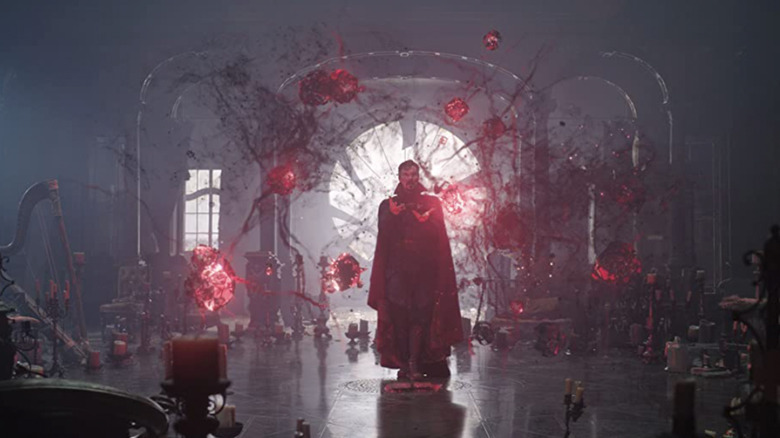Industrial Light & Magic Senior Vice President On The Biggest Challenge Facing The VFX Industry
Visual effects artists are arguably the backbone of the modern filmmaking industry. As superhero and other effects-heavy movies continue to boom, concerns over crunching and the treatment of artists in the lead-up to a movie's release have been brought to light. According to a new report from Vulture, one visual effects artist claimed that the stress Marvel Studios puts on them is excessive and in dire need of relief, saying that when they worked on an MCU project, they worked "seven days a week, averaging 64 hours a week on a good week."
It is clear that the visual effects industry requires a lot of change in order for its artists to be treated and compensated fairly. This idea is one that Industrial Light & Magic understands fully well. In a new interview promoting its career-spanning documentary "Light & Magic" (which airs on Disney+, which also works with Marvel Studios on projects), Senior Vice President Janet Lewin told /Film that they are ready to make the necessary changes that the visual effects industry needs. When asked about the biggest challenge facing the industry, she believes that visual effects work becomes so challenging due to how much media gets produced at one time:
"I think it's the content boom, and the pressure to produce high-quality work at a low cost in short time, that is an industry-wide issue."
A bit of a black box
She's not wrong, either; in just 2022 alone, ILM is expected to work on nine projects, just a little less than the 13 movies the company worked on in 2021. This is a lot for any company to handle, no matter the size or pedigree, so the well-being of artists needs to be top of mind.
Another problem she discussed is the lack of connection between directors and visual effects artists. This was another problem that Vulture's contributor had a lot to say about, saying that the majority of Marvel's directors don't have any idea of how to shoot for VFX work. Lewin elaborated on this, saying:
"Unfortunately, I think that visual effects tends to be a bit of a black box for a lot of filmmakers who don't see the artists who are laboring on their shots. They just don't have as much access to the individuals, so it's really up to the visual effects studios to make sure that we have the right capacity and the right schedules, and manage our clients in a way that can make that sustainable for our artists."
However, ILM is hoping to do all it can to ensure these problems don't affect their artists.
"The over-reliance on visual effects can result in some unfortunate outcomes in the industry at large, and that's something that we're acutely aware of and trying to stay ahead of," Lewin said. "I think that's something that we strive to do at ILM."

